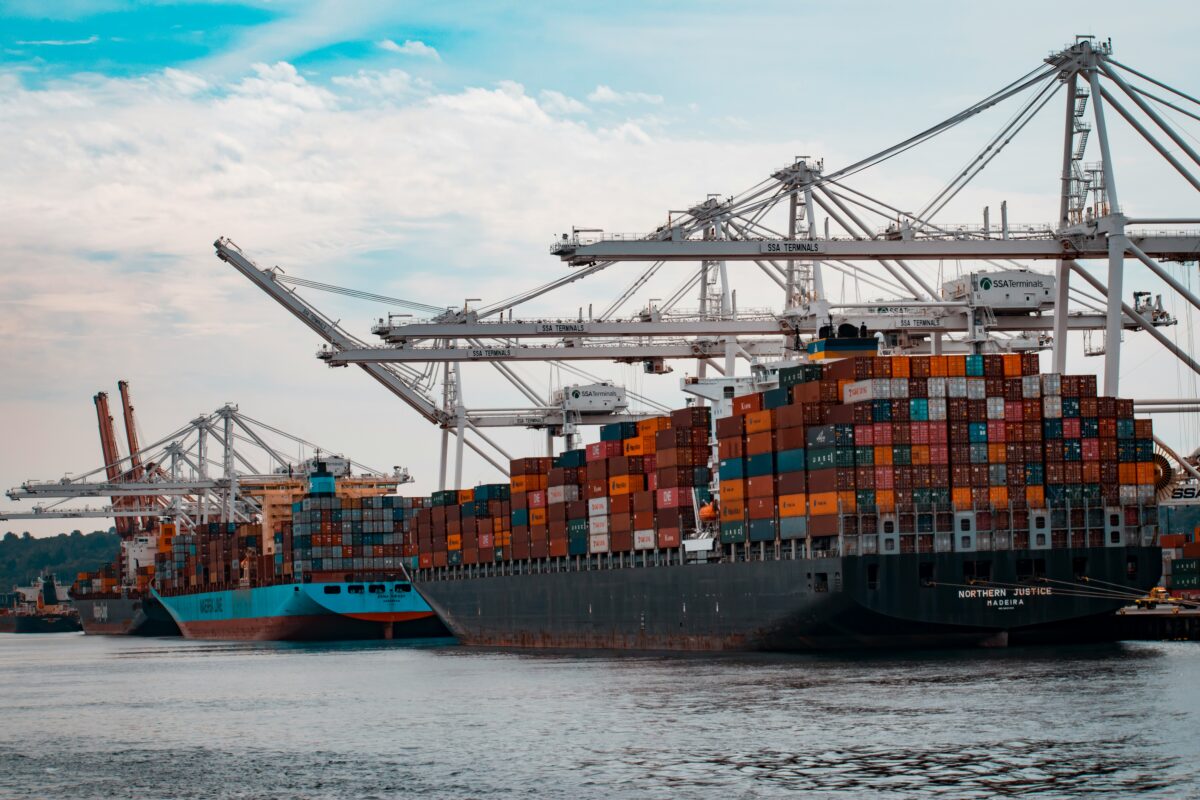In an international literature review published in the journal Science entitled “The soundscape of the Anthropocene ocean,” researchers from institutions across the world conclude that anthropogenic noise pollution in the ocean is affecting marine organisms more than previously thought. According to Ben Haplern, director of the National Center for Ecological Analysis and Synthesis at UC Santa Barbara and coauthor of the study, we have “replaced the sounds of nature throughout the ocean with those of humans” and that policy must become more ambitious in mitigating marine noise pollution.
In order to conduct the study, scientists from Saudi Arabia, Denmark, the U.S. and U.K., Australia, New Zealand, the Netherlands, Germany, Spain, Norway, and Canada carefully analyzed more than 40 years’ worth of published research including over 10,000 primary-source scientific papers. The review found that the increase in human activity since the Industrial Revolution has had detrimental effects on the ocean’s health, including behavioral and physiological changes in marine creatures.
Throughout the world’s oceans, sound is a crucial tool for animals of all shapes and sizes–in the water, sound travels farther than light and moves more quickly under the surface than on land. Many marine mammals use some form of echolocation, which allows them to “see” their environment by sensing the sound waves reflected off surfaces around them. Species that don’t echolocate use sound to communicate with each other, locate food, and detect their surroundings.
According to “The soundscape of the Anthropocene ocean,” a combination of two main changes has impacted the ability of ocean animals to navigate through the soundscape. The first is a decrease in the biophony, or the sounds made by marine organisms as they go about their day-to-day lives. The second (and the focus of this new research) is a significant increase in anthrophony, which consists of all sounds made by human activity.
In reference to biophony, factors like the deterioration of coral reefs and overfishing reduce the overall amount of sounds being emitted by living inhabitants of the ocean. Reduced activity at coral reefs, for example, makes it increasingly difficult for underwater creatures that rely so heavily on sound to locate safe habitats.
The latter aspect–a rapid escalation of noise levels created by human activity–or anthrophony, is the main focus of this new review. Higher rates of shipping alone have caused a 32-fold increase in the low-frequency ocean noise along popular routes over the last 50 years. Though it may seem counterintuitive that frequencies at the surface can have long-reaching impacts throughout the depths of the ocean, the air-sea interface and the sea floor 1,000 meters below are less than one second apart for sound waves. In addition to shipping, Forbes magazine specifies that things like “scientific surveys to map geological features, fishers using technology to look for fish, navies using sonar, noise from shipping routes, traffic on bridges close to water, low-flying aircraft, construction (but not operation) of wind farms,” and many more contribute to the pollution.
It is important to note that many of the activities listed above tend to be pro-environment and anti-pollution at heart, yet they are contributing to the very issue they’re working to mitigate: damage to the world’s oceans. Academic research vessels, surveys to detect geological features of the ocean floor, and the construction of offshore wind turbines all play into this inherent contradiction. Even individual actions like SCUBA diving, often thought of as encouraging an appreciation of the ocean, intensify the anthrophony underwater.
The study contends that an effort to decrease ocean noise pollution is not only an imperative step in the fight against the climate crisis, but it should be the first step, for a variety of reasons. Unlike other climate protection measures, the authors of the study explain, abatement of human noise underwater would have immediate, measurable benefits to environmental health. Though reduction of greenhouse gases or plastic waste is, of course, essential, there would be a waiting period as the climate reacts to these changes.
In today’s technologically advanced world, it is more than possible for this issue to be alleviated, especially for those activities that “produce sound as a by-product (e.g., shipping, construction), rather than intentionally (e.g., seismic surveys, military activities),” the new paper says. The International Maritime Organization has released voluntary guidelines to the public on how to reduce the noise created by propellers, engines, and onboard machinery of ships. Modern alternatives and accommodations to existing strategies means that a reduction of oceanic noise pollution is no longer an unreachable goal.
To put this problem in perspective, Haplern offers the following metaphor: “No one really wants to live right next to a freeway because of the constant noise. For animals in the ocean, it’s like having a mega-freeway in your backyard.” Reduction of underwater noise is an attainable and effective step in the fight against environmental degradation, making now the perfect time to move forward and protect one of the planet’s most crucial ecosystems.
Sources:
Amsen, E. (2021). Human Noise Is Taking Over The Ocean Soundscape. Retrieved 12 March 2021, from https://www.forbes.com/sites/evaamsen/2021/02/21/human-noise-is-taking-over-the-ocean-soundscape/?sh=4a7939c5241b
Duarte, C., Chapuis, L., Collin, S., Costa, D., Devassy, R., & Eguiluz, V. et al. (2021). The soundscape of the Anthropocene ocean. Science, 371(6529), eaba4658. doi: 10.1126/science.aba4658
Healthy Oceans Need Healthy Soundscapes. (2021). Retrieved 12 March 2021, from https://www.news.ucsb.edu/2021/020168/healthy-oceans-need-healthy-soundscapes
Human-generated noise pollution dominates the ocean’s soundscape. (1612). Retrieved 12 March 2021, from https://www.eurekalert.org/pub_releases/2021-02/aaft-hnp020121.php
Noise Pollution Impacting Marine Animals Worse Than Previously Thought. (2021). Retrieved 12 March 2021, from https://e360.yale.edu/digest/noise-pollution-impacting-marine-animals-worse-than-previously-thought#:~:text=Noise%20Pollution%20Impacting%20Marine%20Animals%20Worse%20Than%20Previously%20Thought,-A%20humpback%20whale&text=Human%2Dgenerated%20noise%20disrupts%20the,an%20increased%20risk%20of%20mortality.

